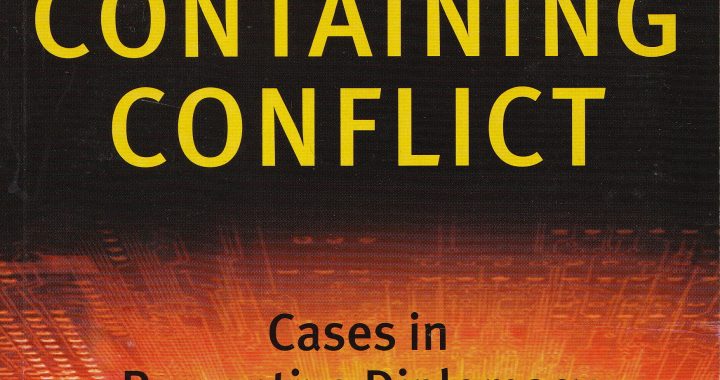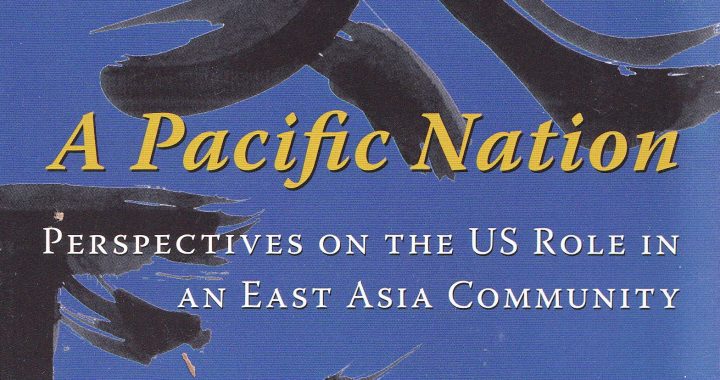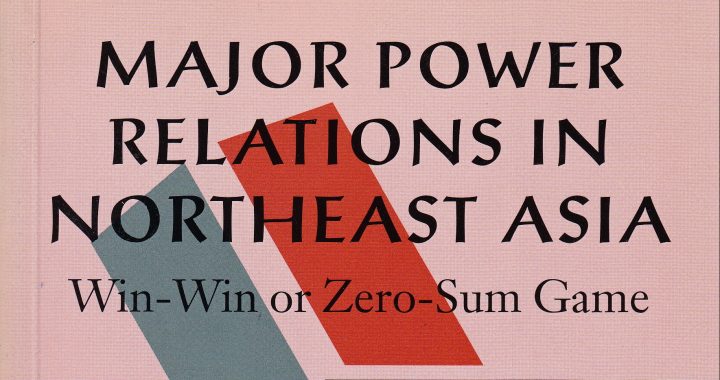JCIE Publications | Containing Conflict: Cases in Preventive Diplomacy

The authors analyze the international community’s responses to conflicts in locations such as the African Great Lakes region, helping them to draw lessons for managing regional conflict through preventive diplomacy.
JCIE Publications | The New Asia-Pacific Order: A Summary Report
This report summarizes five issues raised at the New Asia-Pacific Order Conference: sustainability of economic dynamism; regional groupings in the next decade; major power shifts; a new security architecture; and globalization, particularism, democratization, and human rights.
JCIE Publication | A Pacific Nation: Perspectives on the US Role in an East Asia Community

In this volume, experts from Asia and the United States explore the latest changes in US involvement in regional affairs and analyze the region’s divergent perspectives on the role that the US should play in a new East Asia community.
JCIE Publications | Major Power Relations in Northeast Asia

This publication, the result of a study on the “China-Japan-US Research and Dialogue Project,” contains essays by six American analysts in a multinational team identifying the challenges to productive and peaceful relations among China, Japan, and the United States.
JCIE Publications | Political and Security Cooperation: A New Dimension in ASEAN-Japan Relations?
This book compiles updated versions of papers submitted to the ASEAN-Japan Dialogue Conference in 1984; authors analyze Japan’s expanding role in Southeast Asia in the wake of an American withdrawal from the region that began with the US defeat in the Vietnam War.
JCIE Publications | Handbook on Japanese Foreign Policy and Security
This handbook is a compilation of treaties, joint declarations and communiqués, policy statements, and other foreign policy documents that delineate the postwar legal boundaries within which Japan has dealt with other nations.
The Rise of China and the Changing East Asian Order

Under the joint leadership of three senior intellectual leaders in the region, a major research project was organized in 2002 to study the opportunities and challenges that the rise of China as a regional power presents for the task of regional community-building. The participants came together at the 8th APAP Forum in Kunming, China, on March 21–23, 2003, to present the main themes of their research.
An Enhanced Agenda for US-Japan Partnership

JCIE and the Japan Foundation Center for Global Partnership undertook a study to explore how bilateral cooperation can be deepened in order to face common challenges, strengthen regional and global stability and prosperity, and, ultimately, make the US-Japan alliance more robust and versatile in light of wide-ranging developments that had begun to reshape Asia at the start of the 20th century.
ASEAN-Japan Strategic Partnership and Regional Community Building

This project aimed to study the role and contributions of ASEAN-Japan Partnership in promoting regional community building in Southeast Asia and East Asia, as well as in contributing to global governance. It explored the framework of Japan-ASEAN partnership in ASEAN, Japan’s role in promoting the integration of ASEAN and Japan, and ways in which Japan-ASEAN cooperation can contribute to the creation of an East Asian community.
ASEAN-Japan Cooperation in East Asia Community Building

2003 marked several important anniversaries for the ASEAN-Japan relationship and was designated as the “ASEAN-Japan Exchange Year.” In order to explore ways to strengthen the ASEAN-Japan partnership as a step toward building an East Asian regional community, JCIE held two workshops in 2003 on the theme of “ASEAN-Japan Cooperation in East Asia Community Building”.


